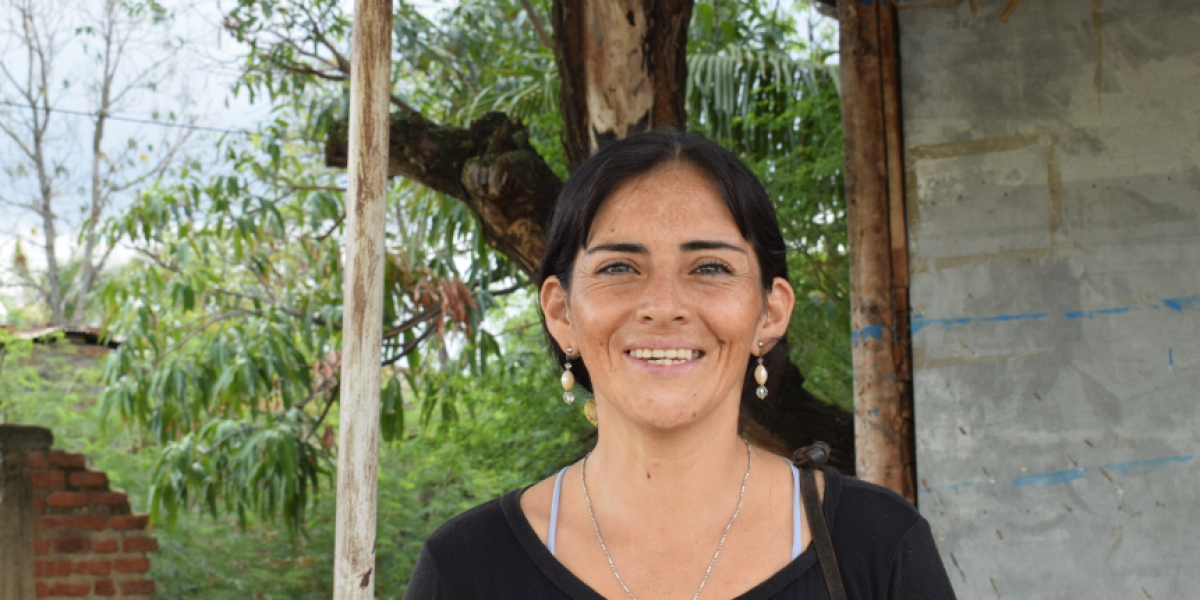Colombia: Faces of Urban Displacement
04 December 2017

Decades of internal armed conflict in Colombia have forcibly displaced thousands of people. Many of these internally displaced persons move to cities where jobs are hard to find, the potential for exploitation is high, and supporting one’s self, let alone a family, is no easy task.
Adriana Caro lives in Cúcuta, Colombia and is one of the many women in the country who has faced the consequences of forced displacement. Originally from Medellín, Adriana fled Bogotá after her partner was murdered by a criminal gang (BACRIM); from there she traveled throughout Colombia struggling to survive. Now she is the breadwinner of her family and is accompanied by JRS Colombia’s local team in North Santander, who support her with a small food business as part of their sustainable livelihood program. “Peace,” she says, “…begins with a smile.”
(Natalia Betancourt/Jesuit Refugee Service)
Evelio arrived in Cúcuta in 1997 because of the armed conflict in Colombia, his livelihood project is metal crafts such as kitchen utensils. “Before knowing JRS, I was very unmotivated, without any project. But now I have a project, I have the motivation to do something and now I have my own business that allows me to have economic stability.”
(Natalia Betancourt/Jesuit Refugee Service)
Yarilene is a 25-year-old woman who was forcibly displaced from Harcari. She arrived in Cúcuta over 10 years ago and with the help of JRS has finished a training course in business planning, marketing, sales, and customer service. These skills will help her move forward with her personal project of producing and selling ice cream.
(Natalia Betancourt/Jesuit Refugee Service)
Cristo arrived in Cúcuta in 2015 when the Colombian internal armed conflict forced him to leave his hometown, an area just outside of El Carmen. He says life was very difficult after he left the small town he is from. As someone displaced in an urban environment, it was almost impossible for him to find a job. This changed once he met JRS. Now, he has his own food cart and can support his family once again.
(Natalia Betancourt/Jesuit Refugee Service)
Flor Marina once had refugee status in Venezuela, but was deported back to Colombia in 2015. After settling in the city of Cúcuta she began a sewing shop with the support of JRS. Her business is booming: she sells her clothes in the town center and even receives pre-orders from some of her faithful customers. With the money from her new business, that she runs along with family members, she has been able to build her own house.
(Maria Teresa Urueña/Jesuit Refugee Service)



